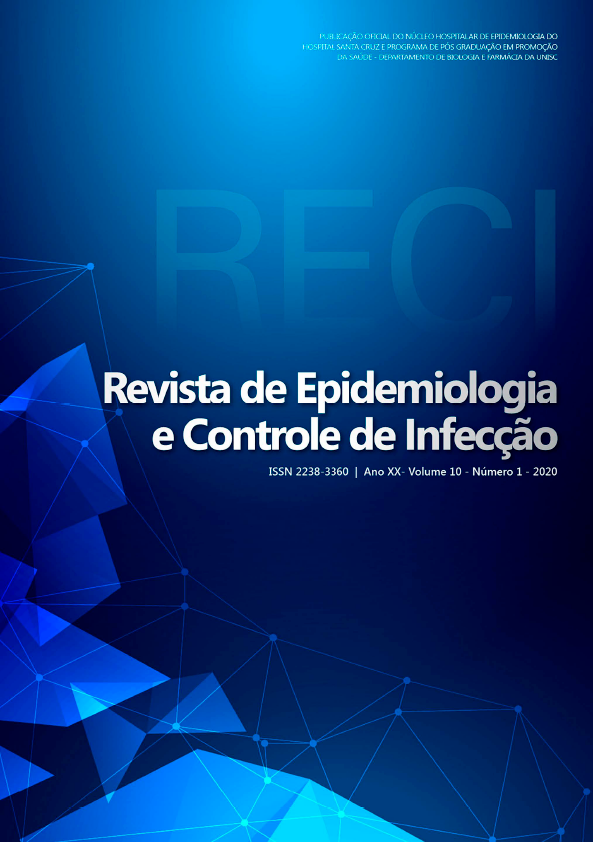Perceptions and knowledge of medical students about HIV and AIDS
DOI:
https://doi.org/10.17058/jeic.v1i1.13046Palabras clave:
Percepção, Conhecimento, Síndrome da Imunodeficiência Adquirida, HIV.Resumen
Background and Objectives: The degree of information is not restricted to informative and opportunity issues of knowledge, but also to the development of a conscious individual perception for the adoption of preventive practices. This study aimed to assess the perception and knowledge of medical students about HIV and AIDS. Methods: This is a cross-sectional, observational, and unicentric study, through the application of a structured questionnaire and two referring to the attitude towards HIV and the individual risk perception and knowledge on modes of transmission. Student’s and Pearson’s Chi-Square Tests were applied, with p <0.05. Two hundred twenty-three medical students from the first to eighth semesters participated. Results: Most university students reported having compassion (90.58%) and no blame (97.31%) for HIV. However, 69.06% did not feel prepared to treat these patients. Moreover, 76.68% reported not having a risk of contracting HIV, a fact of concern for the inherent risk of the profession. Of the 20 questions on knowledge on modes of transmission, the degree of accuracy ranged from 18.2 and 19.4 points. Prevalence (85.2%), prejudice (75.78%), and condom (72.65%) were the main symbolic values associated with HIV. Conclusion: Students presented ethical and humanistic attitudes towards patients with HIV and a high degree of knowledge about the modes of transmission of HIV. Regarding risk perception, there is need for a more focused approach in the Public Health, Infectology, and Immunology disciplines.Descargas
##submission.downloads##
Publicado
Cómo citar
Número
Sección
Licencia
The author must state that the paper is original (has not been published previously), not infringing any copyright or other ownership right involving third parties. Once the paper is submitted, the Journal reserves the right to make normative changes, such as spelling and grammar, in order to maintain the language standard, but respecting the author’s style. The published papers become ownership of RECI, considering that all the opinions expressed by the authors are their responsibility. Because we are an open access journal, we allow free use of articles in educational and scientific applications provided the source is cited under the Creative Commons CC-BY license.


